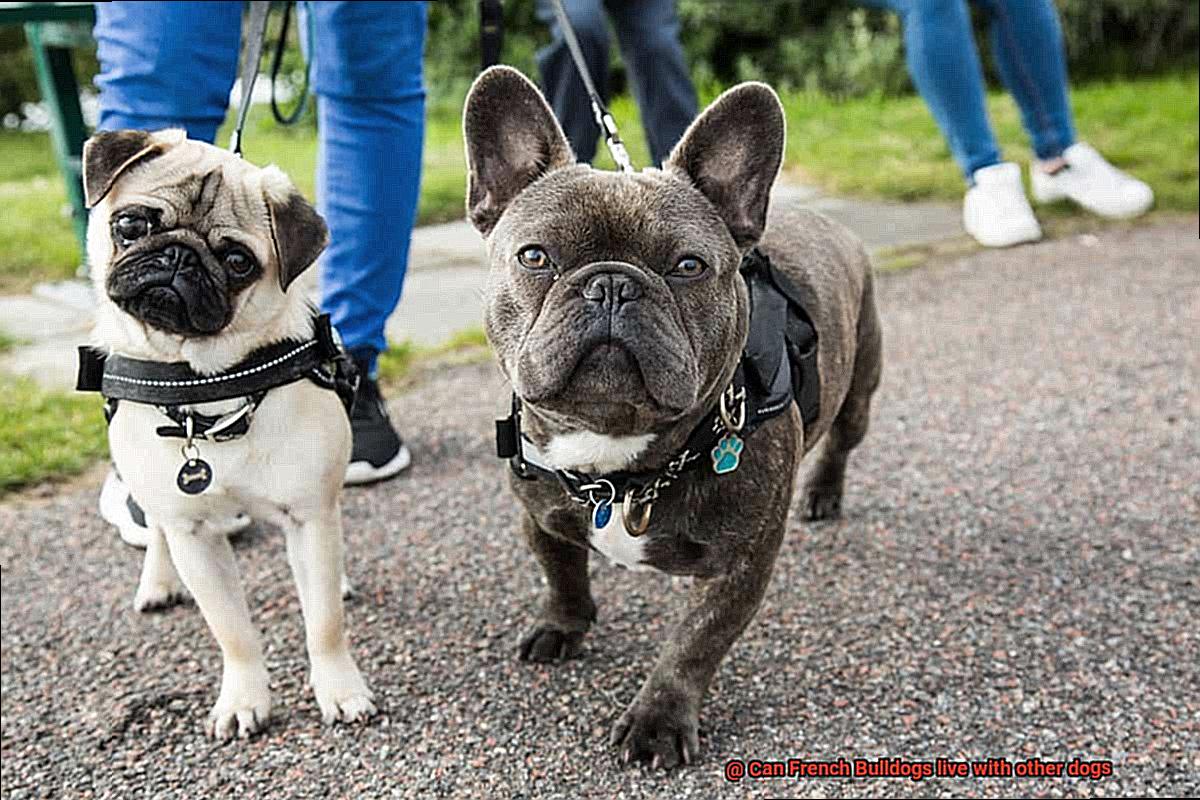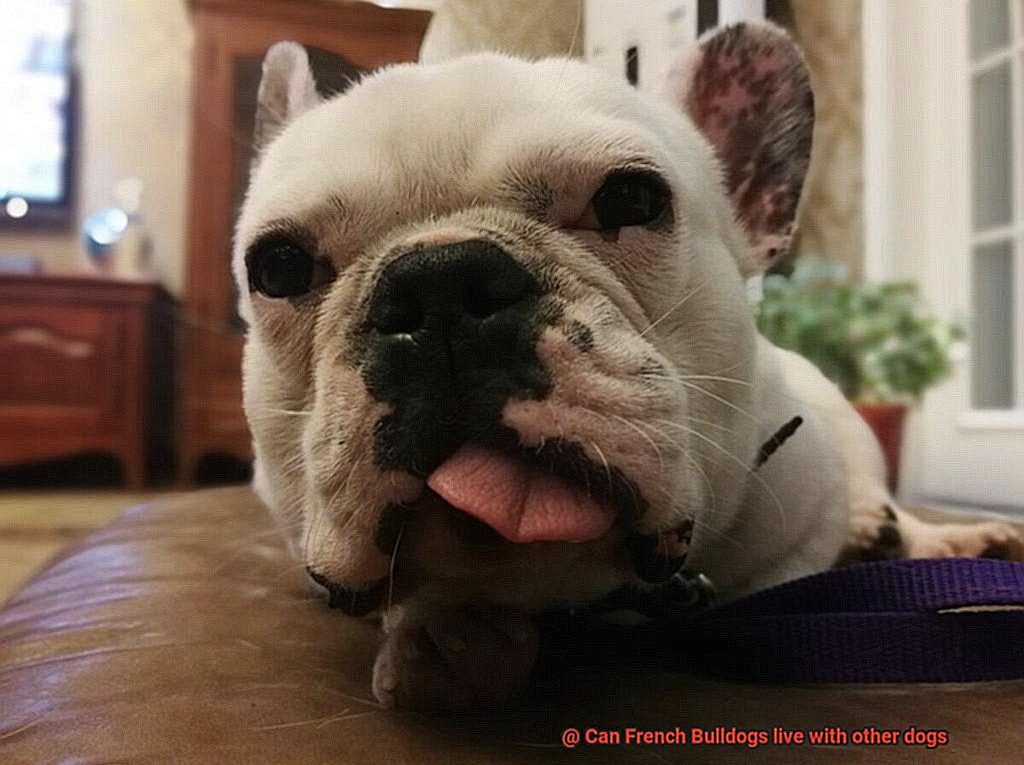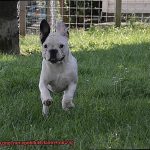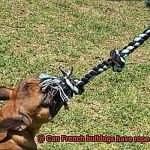Can French Bulldogs live with other dogs?
French Bulldogs – those adorable little bundles of joy with their bat-like ears and squishy faces – have a way of stealing our hearts. But what happens when you want to bring another dog into the mix? Can these pint-sized cuties get along with their furry counterparts, or is trouble on the horizon?
In this blog post, we’re going to explore the question: Can French Bulldogs live with other dogs? We’ll take a closer look at their unique personalities, social tendencies, and the factors that determine whether they’ll be best buds or sworn enemies.
Whether you’re a proud Frenchie owner looking to expand your pup’s social circle or just curious about how different breeds interact, join us as we uncover the fascinating world of French Bulldogs and their potential for canine camaraderie. So grab a cup of coffee, snuggle up with your furry friends, and let’s dive in.
Factors That Determine Whether French Bulldogs Can Live with Other Dogs
Contents
- 1 Factors That Determine Whether French Bulldogs Can Live with Other Dogs
- 2 Early Socialization for a Harmonious Living Environment
- 3 Gender and Size Considerations When Introducing a New Dog
- 4 Proper Introductions for a Smooth Transition
- 5 Territorial Behavior of French Bulldogs and Establishing Boundaries
- 6 Individual Preferences and Needs of Each Dog
- 7 Regular Exercise, Mental Stimulation, and Training for Peaceful Cohabitation
- 8 Monitoring Interactions During the Initial Stages of Introduction
- 9 Conclusion
French Bulldogs are known for their friendly and sociable nature, making them a popular choice for many dog owners. However, when it comes to living with other dogs, there are several factors to consider.
In this article, we will explore the key factors that determine whether French Bulldogs can live harmoniously with other dogs. Understanding these factors can help ensure a successful coexistence and a happy household for both your French Bulldog and their potential canine companions.
Breed temperament:
French Bulldogs are generally friendly and affectionate towards humans and other animals. However, individual temperaments can vary. Some French Bulldogs may be more reserved or have a dominant personality, while others may be more outgoing and social.
It’s important to observe your French Bulldog’s behavior around other dogs to assess their compatibility.
Socialization:
Early socialization plays a crucial role in shaping a French Bulldog’s behavior towards other dogs. Exposing them to different dogs and teaching them proper social skills from a young age can significantly increase the likelihood of them getting along well with other dogs later in life. Positive experiences during socialization will help your French Bulldog develop positive associations with other dogs.
Age and maturity:
Puppies are generally more adaptable and open to new experiences, making it easier for them to adjust to living with other dogs. Adult French Bulldogs can also learn to coexist peacefully with other dogs if introduced properly and given time to establish relationships. Patience and gradual introductions are key during this process.
Gender:
Gender can sometimes influence the compatibility between French Bulldogs and other dogs. Some French Bulldogs may prefer the company of dogs of the opposite gender, while others may have no preference or even display same-gender aggression. Pay attention to your French Bulldog’s behavior around different genders to determine their compatibility.
Training and obedience:
A well-trained French Bulldog is more likely to get along with other dogs. Basic obedience training helps establish boundaries and teaches them how to respond appropriately in various situations. Commands like “sit,” “stay,” and “leave it” can prevent conflicts and ensure a harmonious coexistence with other dogs.
Health and physical limitations:
French Bulldogs are a brachycephalic breed, which means they have a shortened skull shape that can result in respiratory issues and temperature sensitivity. These health concerns can affect their ability to engage in vigorous physical activities, including play with other dogs. Consider your French Bulldog’s health and any physical limitations they may have when determining whether they can live with other dogs.
Early Socialization for a Harmonious Living Environment
Early socialization plays a crucial role in shaping a French Bulldog’s behavior and temperament, increasing the chances of them getting along well with other dogs. This article explores the significance of early socialization for French Bulldogs and provides practical tips for achieving a harmonious living environment.
Expose Them to Various Social Situations:
During the first few months of a French Bulldog’s life, it is vital to expose them to different social situations and interactions with other dogs. This can be achieved through puppy socialization classes, playdates, and supervised visits to dog-friendly environments.
Positive Reinforcement Training:
Positive reinforcement training methods are essential during socialization. Rewarding the French Bulldog for good behavior, such as calm and friendly interactions with other dogs, reinforces these behaviors, making them more likely to occur in the future.
Monitor Body Language:
It is crucial to monitor the French Bulldog’s body language during socialization. Signs of fear or aggression should not be ignored, as they may indicate discomfort or stress. Seeking guidance from professionals can help address any issues that arise.
Gradual and Controlled Introductions:
Introducing a French Bulldog to other dogs should be done gradually and in a controlled manner. Choosing compatible playmates is important, considering factors such as energy levels, temperaments, and play styles. Supervision during initial introductions is crucial.
Consistency is Key:
Consistency is vital in socializing French Bulldogs with other dogs. Regular exposure to different dogs and continued reinforcement of positive behaviors helps solidify their ability to live harmoniously. However, it’s important to assess each dog’s behavior individually.
Gender and Size Considerations When Introducing a New Dog
Bringing a new dog into your home can be an exciting time, but it’s important to consider both the gender and size of the dogs involved to ensure a successful introduction. This article will explore why these factors are crucial when introducing a new dog to your French Bulldog and provide practical tips for a harmonious integration.
Gender Considerations:
Assessing Individual Personalities: While gender can play a role in determining how dogs interact with each other, it’s essential to remember that every dog is unique. Male dogs may exhibit more territorial and dominant behavior, while female dogs may be more nurturing and submissive. However, these traits can vary widely among individuals, so it’s crucial to assess each dog’s personality and behavior before making any assumptions based solely on gender.
Size Considerations:
Reducing the Risk of Injury: Size differences between dogs can pose potential risks during play or conflicts. It is generally recommended to introduce dogs that are similar in size to minimize the risk of injury. A small French Bulldog may feel overwhelmed or threatened by a much larger dog, potentially leading to aggression or fear-based behavior. Similarly, a larger dog may unintentionally harm a smaller dog due to their size and strength differences.
Practical Tips for Introducing a New Dog:

- Neutral Territory: Choose a neutral territory for the initial introductions, such as a park or a friend’s backyard. This helps prevent possessiveness or territorial behavior from either dog.
- Monitor Interactions: Watch the dogs closely during their initial interactions. Look for signs of aggression or discomfort from either dog, such as raised hackles, growling, or stiff body language.
- Positive Reinforcement: Reward appropriate behavior from both dogs with treats and praise. This encourages positive associations and helps build a bond between them.
- Seek Professional Help if Needed: If aggression or discomfort persists, it may be necessary to seek help from a certified dog trainer or behaviorist. They can provide guidance and support throughout the integration process.
By considering both the gender and size of the dogs involved when introducing a new dog to your French Bulldog, you can increase the chances of a successful integration and a harmonious living environment.
Remember to assess each dog’s individual personality, monitor their interactions closely, and seek professional help if needed. With patience, consistency, and positive reinforcement, your French Bulldog can welcome a new furry friend into their life with ease.
Proper Introductions for a Smooth Transition
Introducing a new dog to your French Bulldog can be an exciting but potentially stressful experience for both dogs involved. Proper introductions are crucial to ensure a smooth transition and create a harmonious coexistence. In this blog post, we will explore the importance of proper introductions and provide you with essential tips and insights to make the process as seamless as possible.
Assessing Compatibility:
Before bringing a new dog home, it is important to consider the personalities and temperaments of both dogs. While French Bulldogs are generally friendly and sociable, each dog is unique. Arrange a meet-and-greet in a neutral location to observe how the dogs interact with each other. This initial assessment will help you determine if they are compatible and provide insights into their potential behaviors during introductions.
Step-by-Step Introductions:
- Leash Up: Start by introducing the dogs on leashes for safety and control. This allows you to intervene if necessary and prevents any potential incidents.
- Sniff from a Distance: Allow the dogs to sniff each other from a distance, observing their reactions closely. If they appear relaxed and curious, gradually allow them to get closer while maintaining supervision.
- Stay Calm and Confident: Dogs can sense your emotions, so it is important to stay calm and confident during the introduction process. Your positive energy will help create a relaxed atmosphere for the dogs.
- Observe Body Language: Pay attention to the body language of both dogs. Signs of aggression or discomfort, such as raised hackles, growling, or stiff posture, should be taken seriously. Separate the dogs immediately if such behavior occurs.
- Seek Professional Help if Needed: If there are any signs of aggression or persistent discomfort, consult a professional dog trainer or behaviorist for guidance. They can provide expert advice tailored to your specific situation.

Introducing Through Scent:
In addition to physical introductions, introducing the dogs through scent can help create familiarity and comfort. Swap blankets or toys between the dogs before their face-to-face meeting. This allows them to become familiar with each other’s scent, which can help reduce anxiety during the initial encounter.
Patience and Respect:
Proper introductions may take time and patience. Some French Bulldogs may adapt quickly, while others may require more gradual introductions over several days or weeks. Respect your French Bulldog’s comfort level and give them space if needed. Pushing too fast can lead to stress and potential setbacks in their relationship.
Territorial Behavior of French Bulldogs and Establishing Boundaries
French Bulldogs are known for their charming personalities and affectionate nature. However, just like any other dog breed, French Bulldogs can exhibit territorial behavior. Understanding this behavior and establishing clear boundaries is essential to create a safe and harmonious environment for your furry friend. Here are some tips to help you navigate territorial behavior in French Bulldogs:
- Crate Training: Crate training is an effective method to establish boundaries for your French Bulldog. A crate serves as a safe and secure space for them, providing a clear boundary between their personal territory and the rest of the house. It also helps with housebreaking and prevents destructive behaviors when you’re not able to supervise them.
- Use Baby Gates or Pet Gates: Another way to establish boundaries is by using baby gates or pet gates to block off certain areas of the house. This allows you to create designated spaces where your French Bulldog can roam freely while keeping them away from areas that may be off-limits, such as bedrooms or the kitchen.
- Consistency is Key: Consistency is crucial when it comes to establishing boundaries with your French Bulldog. Make sure everyone in the household follows the same rules and enforces them consistently. This helps your dog understand what is expected of them and reduces confusion.
- Provide Mental and Physical Stimulation: Boredom can lead to territorial behaviors, so it’s important to provide your French Bulldog with plenty of mental and physical stimulation. Engage them in regular exercise, playtime, and interactive toys to keep their minds occupied and prevent frustration.
- Socialization: Socialization plays a crucial role in managing territorial behavior in French Bulldogs. Introduce them to other dogs, people, and different environments from an early age to help them develop good social skills and reduce the likelihood of aggression or territoriality towards other dogs.
- Supervision: When introducing your French Bulldog to other dogs, supervision is essential. Start with controlled, positive interactions in neutral territory, such as a park or a friend’s backyard. Gradually increase the exposure and monitor their behavior closely to ensure a positive experience.
- Seek Professional Help: If you notice any signs of aggression or excessive territorial behavior, it’s important to seek professional help from a dog trainer or behaviorist. They can provide guidance and techniques to address the issue and ensure the safety of both your French Bulldog and other dogs.
Individual Preferences and Needs of Each Dog
French Bulldogs, known for their affectionate and friendly nature, can make wonderful companions. However, when it comes to living with other dogs, it’s crucial to recognize that each French Bulldog has unique preferences and needs. In this article, we’ll explore the factors that influence their ability to coexist with other canines, providing valuable insights to create a harmonious living environment for all.
Sociability and Playfulness:
French Bulldogs are generally sociable dogs that enjoy the company of others. Some individuals thrive in a multi-dog household, relishing the companionship and playtime with their furry friends. These sociable Frenchies often have a higher tolerance for sharing resources like toys, food, and sleeping areas.
Territoriality and Possessiveness:
On the flip side, some French Bulldogs prefer being the sole dog in the household. These dogs may exhibit territorial or possessive behaviors, guarding their belongings and space. It’s crucial to respect their boundaries and provide individual attention and care to ensure their well-being.
Past Experiences:
Negative encounters with other dogs can shape a French Bulldog’s preferences and behavior. If they’ve had traumatic experiences or been involved in fights, fear or aggression towards other dogs may develop. Consulting a professional dog trainer or behaviorist is vital to address these issues safely and effectively.
Age, Gender, and Temperament:
Age, gender, and temperament also play significant roles in a French Bulldog’s compatibility with other dogs. Puppies tend to be more adaptable and open to socialization. Older dogs may have lower tolerance for sharing space or resources due to established routines. Males and females may exhibit different dynamics when living together, requiring careful consideration during introductions.
Regular Exercise, Mental Stimulation, and Training for Peaceful Cohabitation
In this section, we will explore how regular exercise, mental stimulation, and training can help ensure a harmonious living environment for your French Bulldog and their furry friends.
Regular Exercise: Energize and Socialize
French Bulldogs may have a reputation for being couch potatoes, but don’t let that fool you. These lovable companions still require daily exercise to keep them happy and healthy. Here are some exercise tips:
- Daily walks: Take your French Bulldog for regular walks to burn off energy and stimulate their senses. Remember to adjust the intensity based on their age, health, and tolerance.
- Playtime: Engage them in interactive games such as fetch, tug-of-war, or hide-and-seek. This not only exercises their bodies but also encourages socialization with other dogs.
Mental Stimulation: Keeping those Frenchie Brains Busy
French Bulldogs are intelligent and curious creatures that thrive on mental challenges. Here are some ways to keep their minds sharp:
- Puzzle toys: Invest in puzzle toys that provide mental stimulation while rewarding them with treats. This engages their problem-solving skills and keeps boredom at bay.
- Obedience training: Teaching basic commands like “sit,” “stay,” and “leave it” not only establishes boundaries but also enhances communication between you and your Frenchie. Consider enrolling in obedience classes or seeking professional guidance to ensure effective training techniques.
Training for Peaceful Coexistence: Polite Pooches
Training is crucial in fostering positive interactions between French Bulldogs and other dogs. Here are key training tips:
- Socialization: Early exposure to various environments, people, and other dogs is essential for developing good social skills. Gradually introduce your Frenchie to different dogs, ensuring positive experiences and rewarding calm behavior.
- Reinforcement-based training: Focus on positive reinforcement techniques, rewarding desired behaviors and redirecting or ignoring unwanted behaviors. This helps your Frenchie understand what is expected of them and encourages peaceful interactions.
Conclusion:
Regular exercise, mental stimulation, and training are the cornerstones of ensuring peaceful cohabitation between French Bulldogs and other dogs. By meeting their unique needs and behaviors, you can create a harmonious environment where your French Bulldog can thrive and build positive relationships with their furry companions.
Remember, every dog is an individual, so be patient and adaptable in your approach. With the right strategies and a little bit of love, your French Bulldog can become a model citizen in the world of canine coexistence.
Monitoring Interactions During the Initial Stages of Introduction
Bringing a new dog into your family is an exciting time, but it’s essential to ensure a smooth introduction process. This is especially crucial when introducing a French Bulldog to another dog. By closely monitoring their interactions during the initial stages, you can create a safe and harmonious environment for both dogs. Let’s dive into why this is so important.
Ensuring Safety and Well-being:
The safety and well-being of both dogs should be your top priority. French Bulldogs, known for their friendly nature, can sometimes display territorial behavior or become anxious when meeting unfamiliar dogs. By closely observing their interactions, you can intervene if necessary and prevent any potential conflicts or harm.
Setting the Stage:
To set the stage for a successful introduction, opt for a neutral and controlled environment like a park or a fenced backyard. Start by allowing the dogs to sniff each other from a distance while keeping them on leashes. Gradually decrease the distance between them, always watching for signs of aggression or discomfort.
Reading Their Body Language:
Pay close attention to their facial expressions, body postures, and vocalizations. Signs of aggression may include raised hackles, growling, snarling, lunging, or showing teeth. Signs of discomfort can manifest as cowering, submissive behavior, or attempts to avoid contact. Understanding these cues will help you assess their compatibility and ensure a positive interaction.
Seeking Professional Guidance:
If you notice any signs of aggression or discomfort, don’t hesitate to separate the dogs immediately and seek professional guidance from a dog behaviorist or trainer. These experts can provide strategies for successful integration and help address any emerging issues.
Ongoing Monitoring:
Even if the initial introduction goes smoothly, continue monitoring their interactions during subsequent meetings. Dogs need time to establish hierarchy and familiarity with one another. Regular supervision will allow you to address any emerging issues early on and prevent potential conflicts from escalating.
Positive Reinforcement:
During the monitoring process, remember to provide positive reinforcement for desirable behaviors. Rewarding both dogs for calm and friendly interactions can help create a positive association and build trust between them.
7XjR3k5IgRg” >
Conclusion
In conclusion, French Bulldogs can indeed live harmoniously with other dogs.
They are known for their friendly and sociable nature, making them great companions for both humans and fellow canines. With proper introductions and gradual acclimation, French Bulldogs can form strong bonds with their furry friends.
However, with patience, training, and supervision, French Bulldogs can thrive in multi-dog households.




